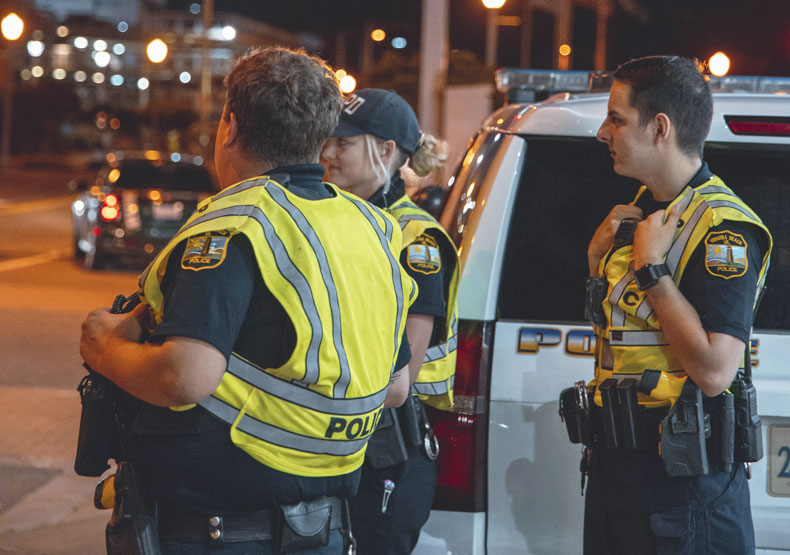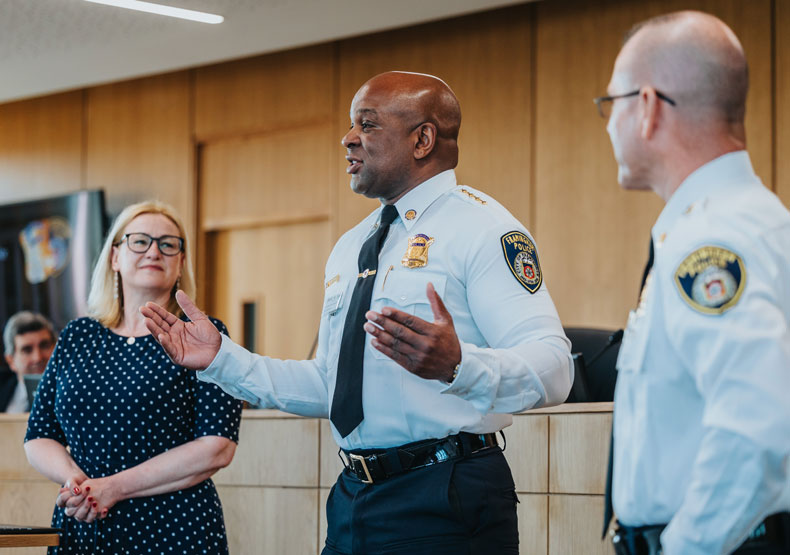Graduate Certificate in Crisis Response and Behavioral Health
Counseling and Behavioral Health
Learn how to respond more safely and effectively to individuals in crisis.
The first-of-its kind credentialing tool for arrest diversion, offering cutting-edge education and training for law enforcement and mental health clinicians working in partnership. Our Graduate Certificate in Crisis Response and Behavioral Health (CRBH) will help guide police and clinicians to defuse situations before force is needed and will provide intensive, skills-based coaching on responding to dynamic, complex, and evolving situations.
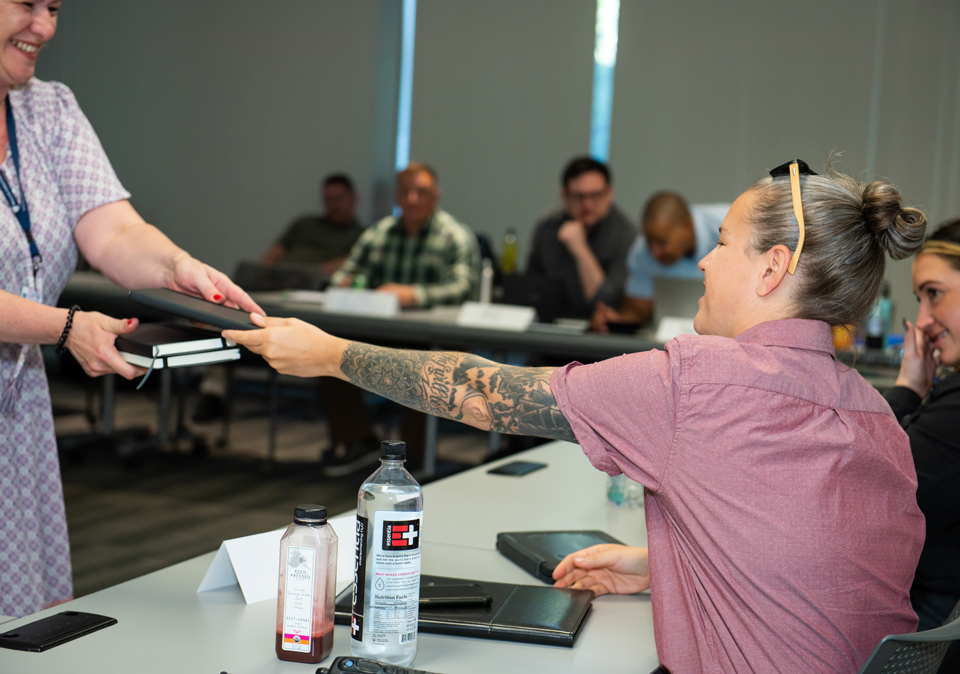
Curriculum Overview
CJ500 - Orientation to Crisis Response and Behavioral Health Certificate Program (credits: 0)
CJ501 - Criminal Justice and Behavioral Health (credits: 3)
CJ505 - Crisis Assessment, Diagnosis and Treatment (credits: 3)
CJ507 - Advanced Crisis Response and Practical Simulations (credits: 4)
Our Philosophy, Your Experience
At William James College, you will combine your classroom knowledge with hands-on experience to get a well-rounded and integrated education. Our curriculum combines an understanding of theory, training, and practice as you develop into a culturally responsive professional. You will be surrounded by like-minded faculty, staff, and peers who, like you, are dedicated to bringing high-quality services to culturally diverse clients, agencies, and organizations. With this training, you will be prepared to make a difference in our communities.
Ready for the Next Step?
What Our Students Are Saying
Our Crisis Response and Behavioral Health (CRBH) graduates shared about their experience in our Graduate Certificate program. Feedback was anonymous and represents graduates from 2022-2025. Our classes include a mix of mental health and law enforcement professionals.
Best Training Program
 “This was a very well-run program and should be available to all police officers.
It was the best law enforcement training I have ever attended, without question.”
“This was a very well-run program and should be available to all police officers.
It was the best law enforcement training I have ever attended, without question.”
“This experience exceeded my expectations and is by far the best training for people working in co-response.”
“You will absolutely leave this course as a better professional whether it’s as an officer or a clinician. The resources you'll gain are irreplaceably helpful in your work moving forward.”
About the Curriculum
 “Within this program I learned so much, even some of the complex topics were easy
to follow through real-world stories and case studies. This program and all the materials
were both comprehensive and informative. Highly recommend this program.”
“Within this program I learned so much, even some of the complex topics were easy
to follow through real-world stories and case studies. This program and all the materials
were both comprehensive and informative. Highly recommend this program.”
“Topics every week were helpful and set up for us to bring questions and have discussions about cases.”
“Class was intriguing, interesting, and dealt with real life, up-to-date issues.”
Learning About the Co-Response Model
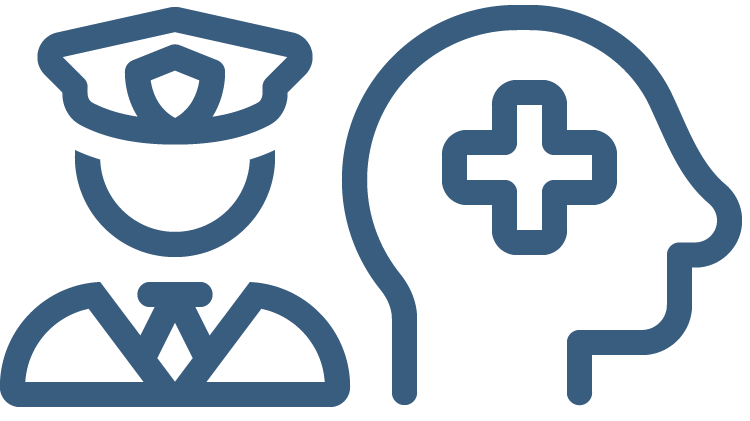 “Practicing for situations we will experience and provided knowledge we need to know
which were very specific to our line of work.”
“Practicing for situations we will experience and provided knowledge we need to know
which were very specific to our line of work.”
“This was an excellent program. I had no training when setting up a co-responder program, and this has supported my efforts to expand my role and create a future in the department.”
“This program gives you a great deal of knowledge about how co-responders should be utilized in the community. It covers various topics within mental health and the criminal justice system. It will make you a better police officer and/or clinician”.
About the Cohort and Faculty
 “The greatest strength was the firsthand knowledge provided by either the guest speakers
or instructors. Also, the dialogue amongst the students was immeasurable because we
were all able to have a takeaway piece on either what to do or what not to do.”
“The greatest strength was the firsthand knowledge provided by either the guest speakers
or instructors. Also, the dialogue amongst the students was immeasurable because we
were all able to have a takeaway piece on either what to do or what not to do.”
“One major strength of this program is having both clinicians and police learning the same materials in the classroom together. This helped officers to be able to see things from the lens of a clinician and vice versa.”
“Bringing police and clinicians together results in fruitful and interesting discussions which helped me expand my view and learn more about where each side is coming from.”
“The greatest strength of the certificate program is the opportunity of bringing clinicians and police officers together in order to achieve a goal that benefits those in need and the departments and resources that are working together.”
Applying What We Learned in Class to the Job
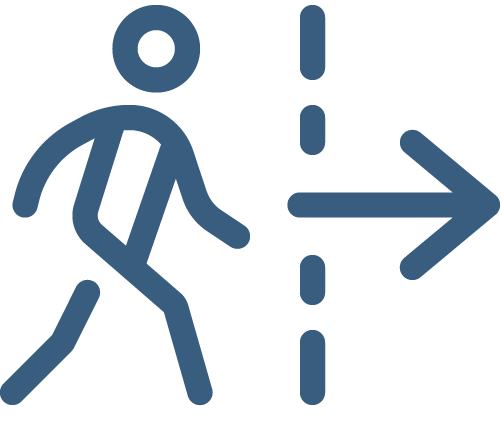 “After every class, I would return to my department and work on implementing what
I learned in class. I was able to share a lot of skills that I learned with others
in the department.”
“After every class, I would return to my department and work on implementing what
I learned in class. I was able to share a lot of skills that I learned with others
in the department.”
“In a field that is fairly new and cutting edge, it helps to hear from the people who have been involved since the beginning. I don't have a supervisor who has done this work before, and it can be hard to bring up topics that are unique to co-response and be told inaccurate information. Being connected to WJC Co-Response and Behavioral Health program provides me with opportunities to consult with others in the field."
“The hands-on learning and the opportunity for the collaboration [is a strength of the program]. I think that hearing about how other people interact with situations in their own communities helps with learning new ideas to apply to our own work. I just enjoyed being able to meet more people in this field because as a solo clinician in a department it can feel a little isolating.”
Left
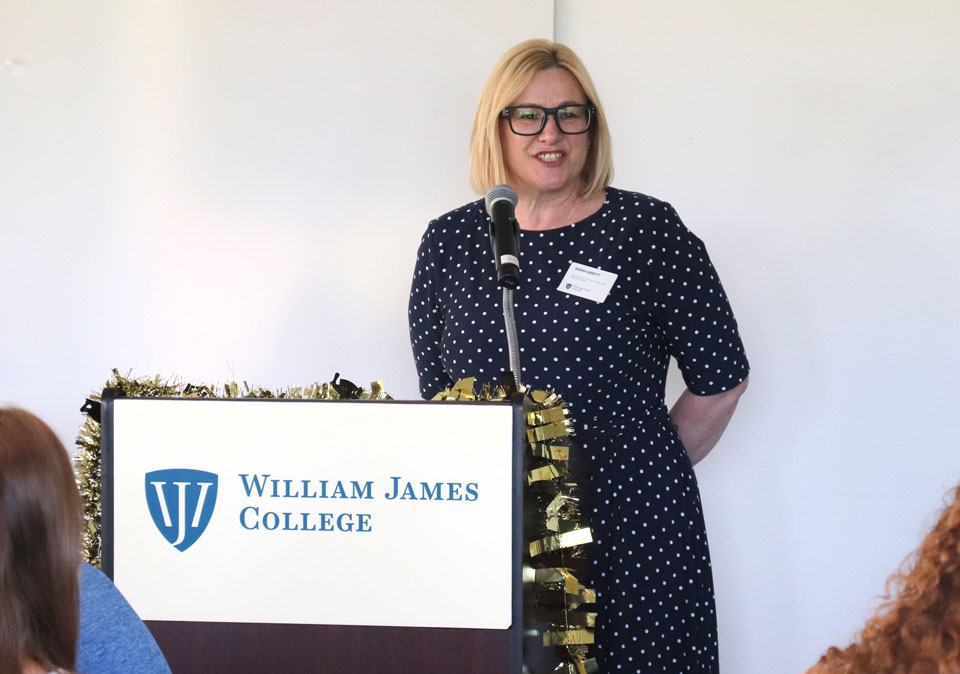
A Case Study
Police-Clinician Co-Response Calms Campus Mental-Health Crises
Featured Contributor: Dr. Sarah Abbott, Director, Director for Crisis Response and Behavioral Health, William James College
Dr. Sarah Abbott, Director of the Center for Crisis Response and Behavioral Health, contributed to a report co-produced by The Chronicle of Higher Education and AT&T. Below is an excerpt from the report.
“If a college student has a mental-health crisis, a uniformed, armed police officer knocking on the door might not be the most comforting, constructive response. It can escalate tensions, leading to panic, misunderstandings, or unnecessary forcible hospitalization or arrest. Often a better course is empathetic listening, calm diagnostic screening, and efficient connection of the student with campus counseling, medical, and other resources.
That’s why an increasing number of colleges are instituting co-response programs that pair campus police officers with clinicians to handle wellness checks and other mental-health-related calls.”
We want to hear from you.
Connect with Our Students
Our Student Ambassadors have volunteered to be a resource for you and answer all of your questions about our programs, graduate school, living in Boston, and more.
Connect with StudentsAttend an Upcoming Admissions Event
We offer virtual information sessions, onsite open houses, and student panels for all of our academic programs.
Register for an EventAround campus, in the community, in the news—William James College community members are leading the conversation.
William James College and Department of Mental Health Co-Sponsor Inaugural Co-Response Research Symposium
William James College's Center for Crisis Response and Behavioral Health (CRBH), in collaboration with the Massachusetts Department of Mental Health (DMH), successfully organized a first-of-its-kind Co-Response Research Symposium on March 31, 2023 at the Warren Conference Center and Inn in Ashland, MA.
Read MoreCenter for Crisis Response and Behavioral Health Speaks at the 4th Annual National Co-Responder Conference
Members of the Center for Crisis Response and Behavioral Health team from William James College were selected to speak at the International Co-Responder Alliance (ICRA) 4th Annual National Co-Responder Conference in Spokane, WA from June 11-14.
Read MoreCenter for Crisis Response and Behavioral Health at the International Association of Chiefs of Police
Bonnie Cuccaro, Associate Director of the Center for Crisis Response and Behavioral Health, had the opportunity to represent William James College at the International Association of Chiefs of Police (IACP) Annual Conference and Expo in Dallas, Texas.
Read More
